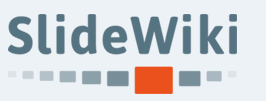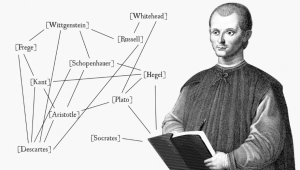SlideWiki OpenCourseWare Summer (SOS2014) Competition
guest - May 8, 2014 in featured, tools
 Darya Tarasowa, a Phd student in the Enterprise Information Systems Department, University of Bonn, has written a post for us introducing the SlideWiki OpenCourseWare Summer (SOS2014) Competition. The competition has been organised by the AKSW research group, EIS department of Universitaet Bonn and Fraunhofer IAIS.
Darya Tarasowa, a Phd student in the Enterprise Information Systems Department, University of Bonn, has written a post for us introducing the SlideWiki OpenCourseWare Summer (SOS2014) Competition. The competition has been organised by the AKSW research group, EIS department of Universitaet Bonn and Fraunhofer IAIS.
SlideWiki is an open courseware tool that aims to exploit the wisdom, creativity and productivity of the crowd for the creation of qualitative, rich, engaging educational content. With SlideWiki users can create and collaborate on slides, diagrams, assessments and arrange this content in richly-structured course presentations.
The SlideWiki OpenCourseWare Summer (SOS2014) Competition aims to encourage OpenCourseWare authors from all over the world to produce high-quality educational content in the form of slide presentations and self-assessment questions. There is no limit on the topics, languages or target audience of the produced content. Instead we want you to focus on creating reusable, re-purposable material. Additionally, we’d like to encourage you to create multilingual courses using the SlideWiki in-built translation tool.
The competition is organised in two stages. In the first stage all participating authors (or groups of authors) will produce some sample content in SlideWiki. The sample course should fulfill the following requirements:
- The course should focus on one specific topic as much as possible
- All content should be either original content produced by you or derived from open licensed sources (e.g. by agreement of the original author)
- The course should include at least 25 slides
- The title of the “root” deck should follow the following format “SOS2014:
”
You can import Powerpoint .pptx files in order to facilitate the initial steps. You can also reuse any content already in SlideWiki, including styles (except the content and styles produced by other participants of the competition).
After the first stage we will choose the best course samples from the competition entries based on the following criteria:
- Semantic structuring of the course (depth of the structuring, relative self-sufficiency of the subdecks etc.)
- Quality of the slides (images, videos, styling)
- Quality of self-assessment questions (number, diversity in difficulty level)
- Multilinguality (the number of languages the course is available in, the quality of translation) Please, notice, that for the course to be considered as multilingual, you must use the in-built translation tool which allows further synchronisation of original and translated versions.
The chosen courses will be added to the list of featured ones and authors are able to continue further development of their courses. The final courses should take the form of a series of at least 5 lectures each with a quality similar to the original winner of the first stage. After the second stage is over five winners will be announced and be awarded with prize money of 300 Euro.
Important dates:
- Initial courses are accepted till: June, 15
- Decision is made till: July, 1
- The final courses have to be finished till: September, 15
- Prize money awarded: October, 1
 Open Education Working Group
Open Education Working Group 





